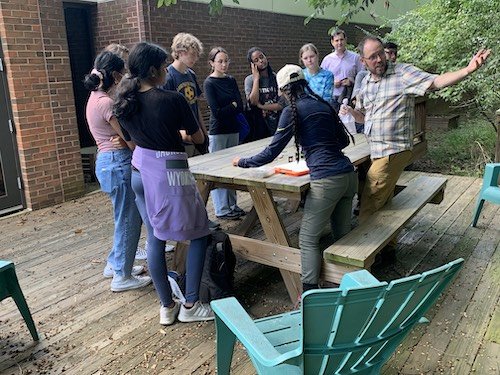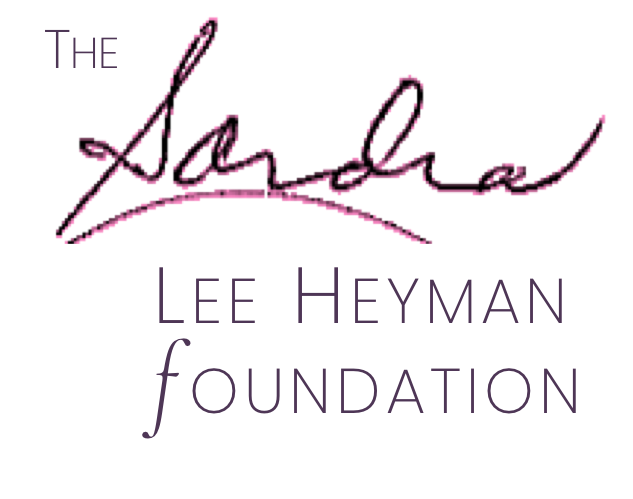Fellows Learn that Internships, Mentors Held the Key to National Zoo Bird Researchers




When Sandra Lee Heyman STEM Career Awareness Fellows visited the Smithsonian National Zoo in mid-September, they learned how important internships and mentors were for two researchers studying birds at the National Zoo & Conservation Biology Institute. Brian S Evans, a migratory bird ecologist, confided that he thought biology was boring in high school, and that it wasn’t until he observed – from the vantage point of a roof that he was repairing – scientists conducting ornithology research that his interest was piqued. His path was far from direct and involved studying initially at a community college and part-time jobs as a gas station attendant and baker before his passion was awakened. “It was two mentors in particular, who helped move me from interest in birds to internships, to my doctorate, and to my current career,” Evans told the fellows. He earned that PhD from the University of North Carolina Chapel Hill.
Samantha “Sam” Carranza has followed a similar path in several respects. She, too, began her collegiate studies at a community college before receiving her undergraduate degree in Organismal Biology at California State University, Long Beach. According to Carranza, “I am a first-generation Latina woman in STEM. Both my parents immigrated from El Salvador and neither received an education past elementary school. I never expected to pursue a degree in biology or a degree in general because in my community it is quite uncommon,” according to Carranza. She joined a MESA (Mathematics, Engineering, Science, Achievement) program in high school and then the Smithsonian Scholars Program, which introduced her to careers in biology, led her to transfer to a four-year college, connected her with professionals in the field who served as mentors, and resulted in an internship with the Smithsonian’s Migratory Bird Center.
“I was very worried because I had the preconception that those who go to a community college were lesser…. I signed up to be part of the Mathematics, Engineering, Science, Achievement program. They helped develop my skills and provide tools needed to do well in my STEM courses. But most importantly it allowed me to attend talks by women of color in STEM. Being able to see people like myself achieve some great things motivated me to keep moving forward.”
The Fellows learned how birds are tracked over time using banding and how to determine a bird’s age and sex. They also used radio receivers to simulate tracking birds. Due to the Covid pandemic, the visit by the Class 3 Fellows was the program’s first in-person event since the fellowship launched in January 2020. Fellows have received insights and personal advice from guest STEM professionals via virtual small group sessions since then.
The Sandra Lee Heyman Foundation is a 501(c)(3) nonprofit organization established in memory of Sandra Lee Heyman, a long-time mathematics teacher at the elementary, middle school, high school, and community college levels. The 18-month long Fellowship is aimed at promising high school students who have the opportunity to meet with STEM leaders, visit prominent institutions in the Washington, D.C., area, and access peers and mentors to support career exploration in STEM fields. There are multiple ways to support the Fellowship program, and donations to the Foundation are tax deductible.
